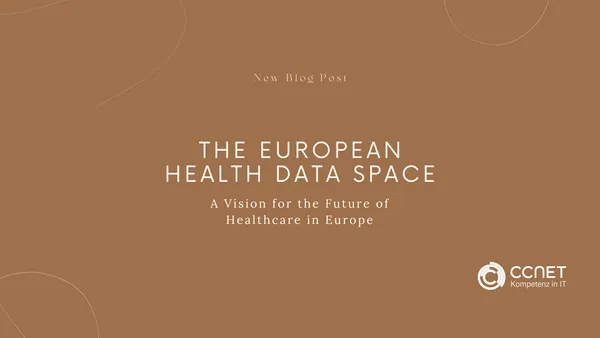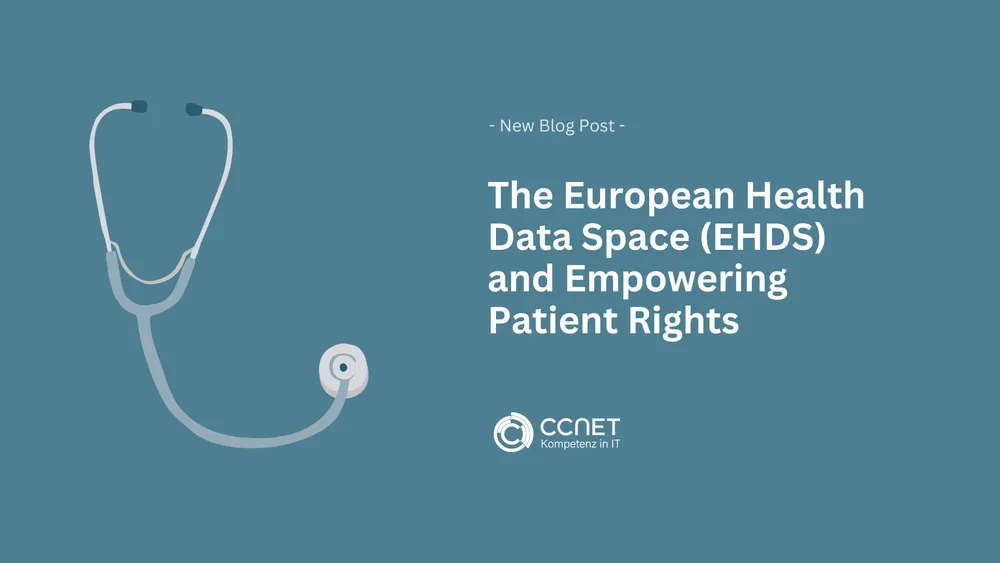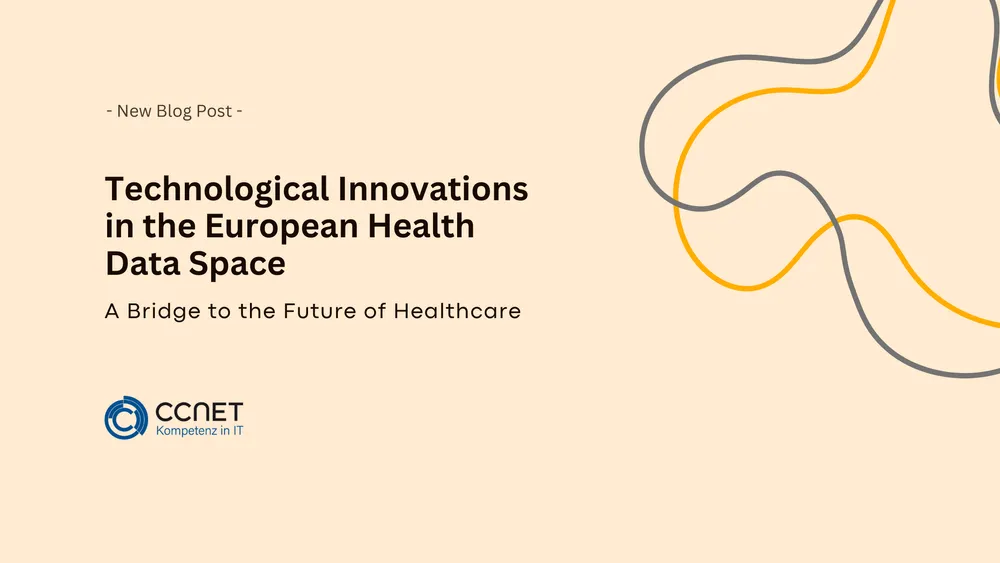
CCNet
Sep 27, 2024 • 2 min read

The European Health Data Space: A Vision for the Future of Healthcare in Europe
The European Union is on the verge of a profound transformation of its health systems. With the introduction of the European Health Data Space (EHDS), the groundwork is being laid for a future where digital technologies and cross-border exchange of health data form the backbone of efficient, inclusive, and patient-centered healthcare. This ambitious step promises to revolutionize the way healthcare services are delivered and utilized in the EU. In this blog post, we take a look at the potential long-term impacts of the EHDS and explore how it could shape the healthcare landscape in Europe.
If you have any further questions, contact us: contact
The Foundations of EHDS
EHDS is an initiative of the European Commission aimed at enabling secure access to and utilization of health data across the EU. Its goal is to improve the quality of healthcare, promote research and innovation in the health sector, and enhance the efficiency of health systems through digitization. EHDS is based on the principles of data protection, data security, and interoperability to ensure secure and efficient data exchange within the EU.
Long-Term Impacts on Patient Care
One of the key benefits of EHDS is the improvement of patient care. By facilitating access to health data, doctors and medical professionals can gain a more comprehensive view of patient history, leading to more precise diagnoses and effective treatment plans. Additionally, EHDS enables greater personalization of medicine by tailoring treatments and prevention strategies to individual patient needs.
Accelerating Medical Research and Innovation
EHDS is expected to have a significant impact on medical research and innovation. By streamlining access to a wide range of health data, researchers can better understand complex diseases and develop new treatment methods. This could lead to breakthroughs, particularly in areas such as genomics and personalized medicine, ultimately accelerating the development of new therapies and medications.
Strengthening Health Systems
Another significant advantage of EHDS is the potential strengthening of health systems in the EU. Through digitization and efficient exchange of health data, health systems can better allocate resources, optimize administrative processes, and improve the quality of healthcare services. This could not only lead to cost savings but also increase accessibility and inclusivity of healthcare.
Challenges of the Future
Despite promising prospects, implementing EHDS also brings challenges. These include technical and regulatory obstacles, the need for EU-wide interoperability, and ensuring a high level of data protection. Additionally, the initiative must gain the trust of citizens and ensure that all EU citizens can equally benefit from the advantages of EHDS.
A Glimpse into the Future
The long-term vision of EHDS is a European healthcare landscape shaped by digital technologies, where patients have access to high-quality healthcare services regardless of their location. In this future, health systems are not only more efficient and cost-effective but also fairer and more inclusive. EHDS could become a model for global cooperation in the healthcare sector and lead Europe to the forefront of global health innovation.
Conclusion
The European Health Data Space represents a significant opportunity to transform healthcare in the EU. By improving patient care, accelerating medical research, and strengthening health systems, EHDS has the potential to have long-term positive impacts on the health and well-being of European citizens. While challenges exist, the path forward is clear: With commitment, innovation, and collaboration, EHDS can realize its vision of improved healthcare for all Europeans.


